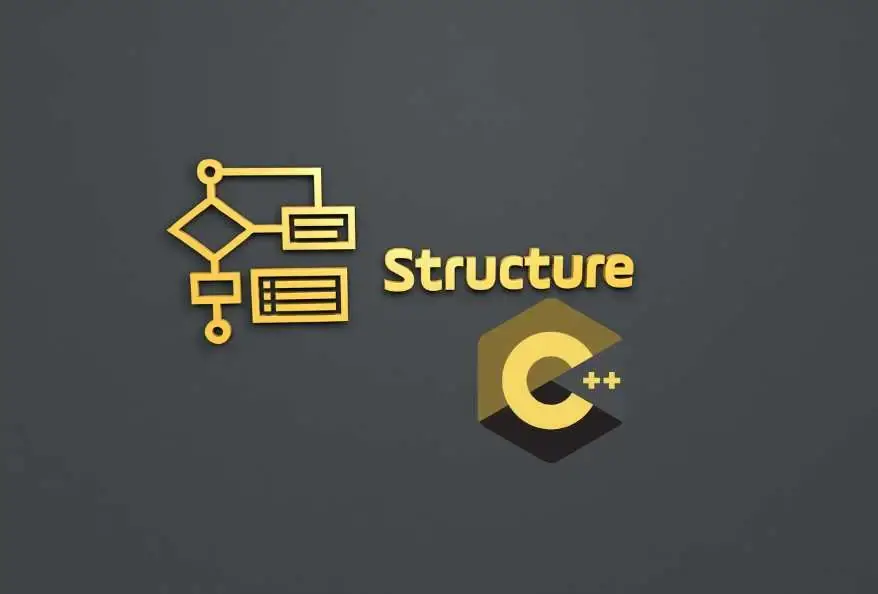Mastering Data Structures and Algorithms with C++: A Path to Competitive Programming Success
Estimated reading time: 6 minutes
Competitive programming is a challenging but rewarding pursuit. It not only sharpens your problem-solving skills but also enhances your understanding of core computer science concepts that are critical for software development and technical interviews. One of the most essential foundations for excelling in competitive programming is a solid grasp of data structures and algorithms (DSA), especially when implemented efficiently in a programming language like C++.
If you’re aiming to improve your programming skills, participate in contests, or simply strengthen your technical foundation, learning data structures and algorithms with C++ is an innovative and practical choice.
This article will guide you through why mastering DSA is essential, why C++ is preferred in competitive programming, and how a structured approach to learning can help you succeed.
Why Data Structures and Algorithms Matter
At its core, programming is about solving problems, and the efficiency of your solutions depends heavily on the data structures and algorithms you use.
- Data Structures are ways to organize and store data so that operations like searching, inserting, deleting, and updating can be done efficiently.
- Algorithms are step-by-step procedures or formulas for solving problems, such as sorting, searching, and traversing data.
Understanding how to choose the proper data structure and algorithm for a problem can drastically reduce your program’s runtime and memory usage.
This not only matters for competitive programming contests with strict time limits but also for real-world software development, where efficiency can impact user experience and resource costs.
Why Choose C++ for Learning DSA and Competitive Programming?
C++ is one of the most popular languages for competitive programming. There are several reasons for this:
- Speed and Performance: C++ is a compiled language that runs very fast compared to interpreted languages like Python. This speed advantage can make a difference in contests where execution time is critical.
- Standard Template Library (STL): C++ offers a powerful STL that includes pre-implemented data structures (like vectors, sets, maps) and algorithms (like sort, binary search) that save time and reduce errors.
- Fine Control: C++ provides control over memory management and system resources, which can be essential for optimizing complex algorithms.
- Broad Adoption: Most competitive programming platforms and problems are designed with C++ in mind, making it easier to find help, tutorials, and code examples.
For these reasons, many programmers choose C++ to learn and implement DSA concepts effectively.
The Challenges of Learning DSA with C++
Despite its advantages, C++ has a steeper learning curve than some other languages. The syntax is more complex, and managing pointers, memory, and advanced features can be tricky for beginners. Additionally, DSA concepts themselves can be abstract and complex to grasp without clear, structured learning.
Many learners find themselves stuck between jumping around YouTube tutorials, blogs, and free online courses without a clear roadmap, which often leads to frustration and slow progress.
Why a Structured Approach Makes a Difference
When learning data structures and algorithms, consistency and progression matter. Randomly picking topics or following disconnected tutorials can leave gaps in understanding, making it hard to apply concepts effectively.
A structured approach offers:
- Clear Roadmap: Clear Roadmap: Start from fundamentals and gradually move to advanced topics, just like in a well-designed C++ course.
- Hands-on Coding: Practical exercises with real code examples to reinforce concepts.
- C++ Focus: Tailored explanations that address C++ syntax and STL usage.
- Problem Solving Techniques: Guidance on how to analyze and approach different types of problems.
This way, learners can build confidence step-by-step and develop a problem-solving mindset essential for competitive programming.
What Topics Should You Cover?
A comprehensive study of data structures and algorithms with C++ typically includes:
1. Basics
- C++ syntax essentials (variables, loops, conditionals)
- Arrays and strings
- Pointers and dynamic memory allocation
2. Core Data Structures
- Linked lists (singly, doubly, circular)
- Stacks and queues
- Trees and binary trees
- Binary search trees (BST)
- Heaps and priority queues
- Graphs and their representations
3. Algorithms
- Sorting (bubble, selection, insertion, merge, quicksort)
- Searching (linear, binary search)
- Recursion and backtracking
- Divide and conquer strategies.
- Dynamic programming (DP)
- Greedy algorithms
- Graph algorithms (DFS, BFS, shortest path algorithms)
4. Advanced Topics
- Bit manipulation
- Segment trees and Fenwick trees
- String algorithms (KMP, Rabin-Karp)
- Advanced graph algorithms (Dijkstra, Floyd-Warshall, etc.)
How to Practice and Reinforce Learning?
Learning theory alone is not enough; the key to mastering DSA is consistent practice. With this purpose in mind, platforms like LeetCode and Codeforces offer problems ranging from beginner to advanced levels, which help solidify your understanding by applying concepts in varied contexts.
Start with easier problems related to each topic and gradually increase difficulty. Also time yourself in contests or practice sessions to simulate the pressure of real competitions.
Reading editorial solutions and understanding different approaches also helps improve problem-solving skills and exposes you to diverse techniques.
How a Dedicated Course Can Help?
Many learners find it beneficial to follow a dedicated course that covers all these topics in a structured, progressive way. Specifically, such courses typically combine theory, coding demonstrations, and practice problems in C++.
For example, the data structures and algorithms in C++ course offered by Great Learning provides a comprehensive curriculum designed to help learners build strong foundations. The course includes:
- Detailed explanations of each data structure and algorithm with C++ implementations.
- Hands-on exercises to practice coding and problem-solving.
- Focus on commonly asked competitive programming problems and patterns.
- Guidance on how to use STL effectively for faster coding.
Having a well-organized curriculum ensures that you don’t miss essential concepts and build your skills efficiently.
Tips for Success While Learning DSA with C++
- Start Small: Focus on mastering basic data structures (arrays, linked lists) and simple algorithms (sorting, searching) before moving to complex topics like trees and graphs.
- Write Code by Hand: Writing code without an IDE forces you to think through every step. In doing so, improving your understanding and reducing reliance on autocomplete.
- Understand, Don’t Memorize: Focus on understanding the logic behind algorithms. Grasping the “why” and “how” makes it easier to apply concepts to different problems.
- Practice Regularly: Consistent practice helps reinforce concepts and improve problem-solving speed. Therefore, set daily or weekly goals to solve problems.
- Analyze Your Mistakes: Learn from errors by reviewing why a solution didn’t work. Consequently, understanding your mistakes improves your approach to future problems.
- Participate in Contests: Competing on platforms like Codeforces or AtCoder not only helps you improve under time pressure but also exposes you to different problem types.
- Discuss and Collaborate: Join coding communities and forums to share solutions, as well as ask questions, and learn from others’ approaches.
Final Thoughts: Data Structures and Algorithms with C++
Mastering data structures and algorithms with C++ can seem daunting initially, but with the right approach and resources, it’s completely achievable. The skills you build will not only help you excel in competitive programming but also prepare you for technical interviews and real-world software challenges.
If you’re serious about improving your problem-solving skills, investing time in learning DSA systematically and practicing regularly will pay off. Therefore, structured courses, paired with free resources and consistent practice, can provide the guidance and motivation needed to succeed.
Remember, every expert started as a beginner; what matters most is your persistence and willingness to learn. So take one step at a time, practice a little every day, and watch your skills grow!
Additionally, to stay updated with the latest developments in STEM research, visit ENTECH Online. Basically, this is our digital magazine for science, technology, engineering, and mathematics. Further, at ENTECH Online, you’ll find a wealth of information.






